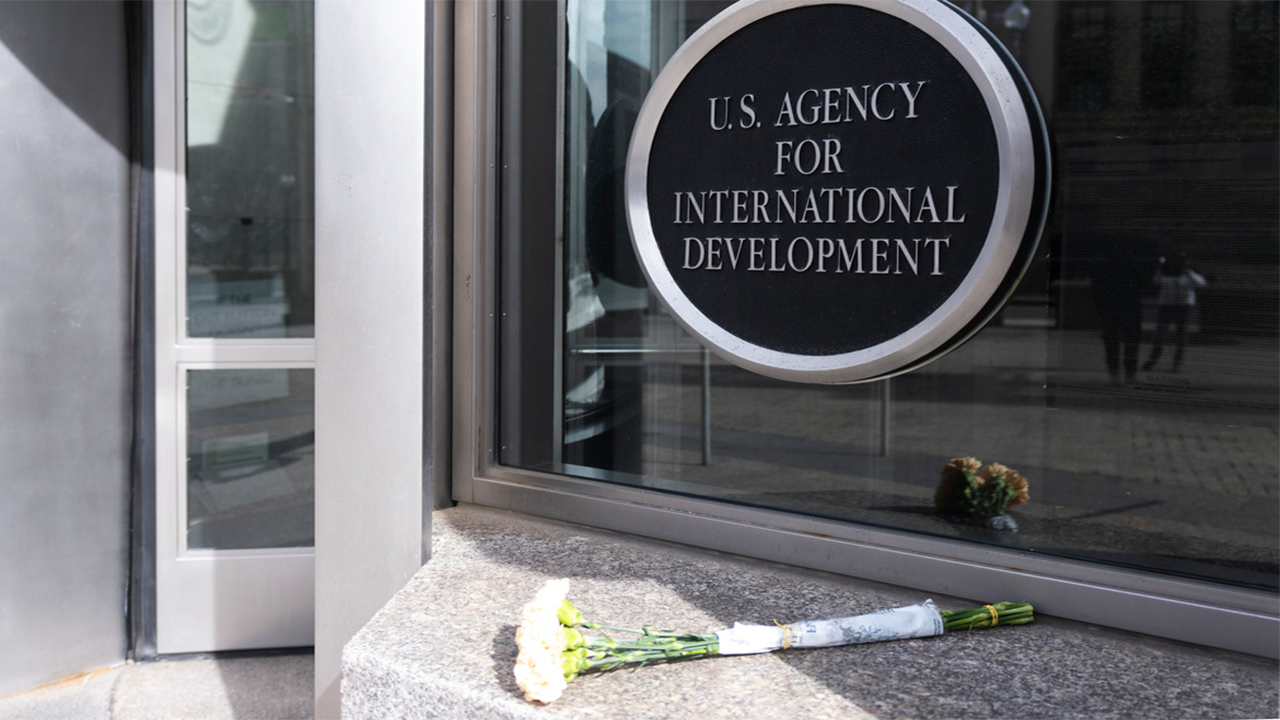Politics
Judge orders temporary reversal of Trump admin’s freeze on foreign aid

Federal Judge Orders Trump Administration to Lift Funding Freeze on Foreign Aid
In a significant legal development late Thursday, a federal judge ruled against the Trump administration, compelling it to lift a three-week funding freeze on U.S. foreign aid. The decision, issued by Judge Amir Ali in the U.S. District Court in Washington, D.C., comes in response to a lawsuit filed by two health organizations that rely on U.S. funding for their international programs. The ruling marks a temporary setback for the Trump administration’s efforts to reassess and potentially cut certain foreign aid initiatives. The judge’s order underscores the importance of transparency and accountability in the allocation of taxpayer dollars for global aid programs.
The Lawsuit and the Trump Administration’s Defense
The lawsuit was brought forward by two health organizations that receive U.S. funding to support their programs abroad. These organizations argued that the sudden and sweeping freeze on foreign aid caused significant disruption to their operations, impacting critical health initiatives around the world. The Trump administration defended its actions, stating that the funding freeze was necessary to conduct a thorough review of the thousands of programs funded by the U.S. Agency for International Development (USAID). Officials claimed that this review was essential to determine which programs should be continued, modified, or eliminated.
However, Judge Ali was unconvinced by the administration’s rationale. In his order, he pointed out that Trump officials failed to provide a satisfactory explanation for why a "blanket suspension" of all foreign aid programs was necessary before conducting a more detailed review. The judge’s ruling effectively halts the administration’s attempt to impose a broad and indiscriminate freeze on foreign aid, at least for the time being. This decision highlights the tension between the executive branch’s desire to reshape U.S. foreign policy and the judiciary’s role in ensuring that such actions comply with legal and constitutional standards.
The Role of USAID and Its Potential Abolition
The U.S. Agency for International Development (USAID) has been a cornerstone of American foreign aid since its establishment in 1961 under the Kennedy administration. As an independent agency, USAID works closely with the State Department to allocate civilian foreign aid, with the goal of promoting global health, economic development, and humanitarian assistance. However, the agency’s future is now uncertain following recent statements from Under Secretary of State Marco Rubio. In a letter to bipartisan lawmakers on February 3, Rubio suggested that USAID could be abolished in the coming days as part of a broader reorganization effort.
The potential abolition of USAID has raised concerns among lawmakers and international aid organizations, who argue that the agency plays a vital role in advancing U.S. interests abroad while also addressing global challenges such as poverty, disease, and conflict. The judge’s ruling, while focused on the funding freeze, adds another layer of complexity to the ongoing debate over the future of U.S. foreign aid and the role of USAID in particular. As the administration continues to pursue its agenda, the judiciary’s intervention serves as a reminder that significant changes to established programs must be subject to scrutiny and accountability.
The Human Impact of the Funding Freeze
The temporary freeze on U.S. foreign aid has already had significant consequences for the organizations and individuals who rely on this funding. Health programs aimed at combating infectious diseases, providing emergency assistance, and improving access to healthcare in developing countries have been severely impacted. The two health organizations that brought the lawsuit argued that the sudden suspension of funding placed critical services at risk, leaving vulnerable populations without essential support. The judge’s decision to lift the freeze offers a measure of relief to these organizations and the communities they serve, allowing them to resume their life-saving work.
However, the broader implications of the Trump administration’s approach to foreign aid remain a cause for concern. By targeting USAID and its programs, the administration risks undermining decades of progress in global development and humanitarian assistance. The judge’s ruling serves as a temporary reprieve, but the long-term fate of U.S. foreign aid remains uncertain. As the legal and political battle over foreign aid continues, the human cost of such decisions must not be overlooked. The ability of the United States to project influence and promote stability around the world is, in part, tied to its commitment to supporting those in need.
Conclusion: A Balance Between Executive Authority and Judicial Oversight
Judge Ali’s ruling is a clear assertion of judicial authority in the face of executive overreach. While the Trump administration has broad discretion in shaping foreign policy, the courts play a crucial role in ensuring that such actions are conducted in a lawful and transparent manner. The decision to lift the funding freeze on U.S. foreign aid is a reminder that the judiciary is an essential check on executive power, preventing unilateral decisions that could have far-reaching and detrimental consequences. As the administration continues to pursue its agenda, the interplay between the executive branch, the judiciary, and Congress will be closely watched, particularly in matters related to foreign aid and international development.
In the end, the outcome of this legal battle will have significant implications for the future of U.S. foreign aid and the role of USAID. While the judge’s ruling offers a temporary reprieve for the programs affected by the funding freeze, the broader debate over the administration’s approach to global aid is far from over. As policymakers navigate this complex landscape, they must consider not only the legal and political dimensions of their decisions but also the human impact on those who rely on U.S. assistance around the world.


















